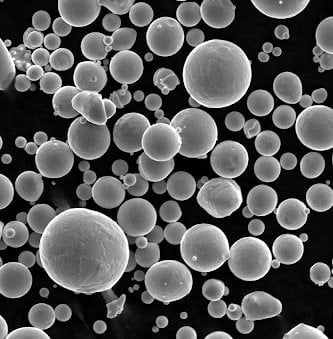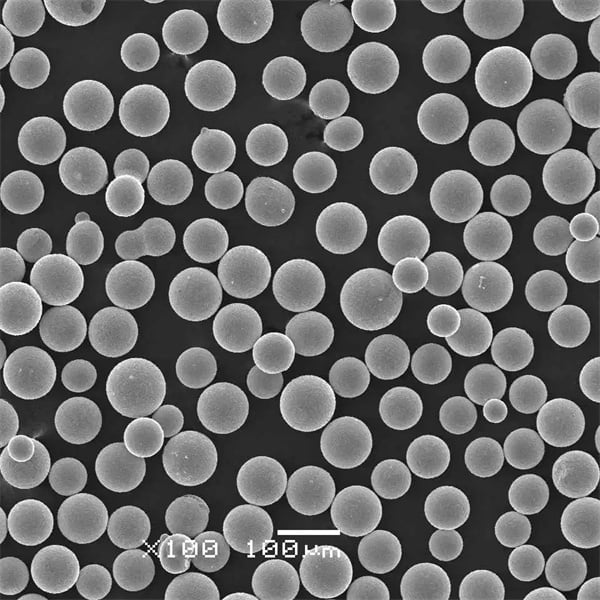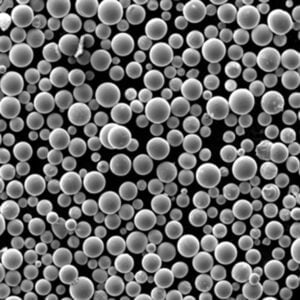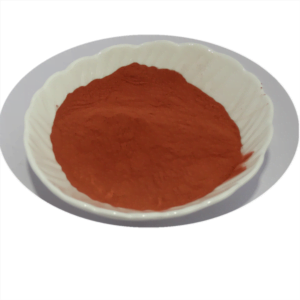Overview of 15n20 Powdered Steel
Table of Contents
15n20 is a versatile and widely used powdered steel grade prized for its remarkable strength, hardness, and durability. This finely milled metallic powder exhibits excellent compressibility and has become an indispensable raw material in the realm of powder metallurgy.
Powder metallurgy, the process of manufacturing components from compressed metal powders, has gained immense popularity due to its ability to produce complex shapes with superior mechanical properties and minimal waste. 15n20 powdered steel shines in this domain, making it a top choice for industries ranging from automotive to aerospace.
The unique properties of 15n20 stem from its carefully controlled composition and manufacturing process. Let’s delve deeper into what makes this powdered steel a true powerhouse.
15n20 Powdered Steel Composition and Properties
| Property | Value/Description |
|---|---|
| Chemical Composition | 0.15-0.25% Carbon, 0.8-1.2% Manganese, 0.2-0.5% Nickel, 0.2-0.5% Chromium, Balance Iron |
| Density | 7.85 g/cm³ |
| Apparent Density | 2.8-3.2 g/cm³ |
| Flow Rate | 26-32 s/50g |
| Green Strength | 400-600 MPa |
| Sintered Strength | 1000-1300 MPa |
| Hardness | 30-35 HRC |
| Compressibility | Excellent |
At the heart of 15n20’s exceptional performance lies its finely tuned chemical composition. The presence of carbon acts as a strengthening agent, while manganese enhances hardenability and wear resistance. Nickel and chromium further contribute to the steel’s strength and corrosion resistance, respectively.
This meticulously balanced alloy blend results in a powdered steel with a unique combination of properties. Its high green strength (the strength of the compacted powder before sintering) and sintered strength (strength after sintering) make it suitable for applications requiring exceptional mechanical resilience.
But 15n20’s prowess extends far beyond sheer strength. Its excellent compressibility, a crucial factor in powder metallurgy, ensures uniform and consistent part production. The flow rate, a measure of how easily the powder flows during the compaction process, is optimized for efficient manufacturing.

Industrial Applications of 15n20 Powdered Steel
| Industry | Applications |
|---|---|
| Automotive | Transmission components, engine parts, suspension components, brake systems |
| Aerospace | Landing gear components, engine parts, structural components |
| Energy | Hydraulic system components, valve components, drilling equipment |
| Industrial Machinery | Gear systems, bearings, cutting tools, wear-resistant components |
| Agriculture | Tillage tools, harrow components, cultivator parts |
| Consumer Products | Hand tools, hardware, sporting goods |
The versatility of 15n20 powdered steel is evident in the wide array of industries it serves. In the automotive sector, its strength and wear resistance make it an ideal choice for critical components such as transmission parts, engine components, and brake systems. These applications demand exceptional durability to withstand the rigors of continuous operation and harsh environments.
The aerospace industry, with its stringent requirements for lightweight yet robust materials, has embraced 15n20 for landing gear components, engine parts, and structural elements. The combination of high strength and corrosion resistance ensures reliable performance under extreme conditions.
In the energy sector, 15n20 powdered steel finds applications in hydraulic system components, valves, and drilling equipment, where its hardness and wear resistance are paramount. These components must endure intense pressures, abrasive environments, and constant wear, making 15n20 an excellent choice.
Industrial machinery, such as gear systems, bearings, and cutting tools, benefit from 15n20’s exceptional mechanical properties. Its ability to withstand heavy loads and maintain dimensional accuracy under high stresses contributes to extended service life and improved productivity.
Even in the agriculture industry, 15n20 powdered steel plays a vital role in the manufacturing of tillage tools, harrow components, and cultivator parts. These applications demand robust materials capable of withstanding the rigors of harsh field conditions and abrasive soil environments.
Beyond heavy industries, 15n20 powdered steel has found its way into consumer products such as hand tools, hardware, and sporting goods, where its strength and durability offer superior performance and longevity.
Specifications and Standards for 15n20 Powdered Steel
| Specification/Standard | Description |
|---|---|
| MPIF Standard 35 | Standard for materials used in powder metallurgy (PM) structural parts |
| ASTM B243 | Standard terminology of powder metallurgy |
| ASTM B312 | Standard practice for sintered powder metal structural components |
| ISO 4490 | Powder metallurgy – Vocabulary |
| ISO 3325 | Sintered metal materials, excluding hardmetals – Determination of density |
To ensure consistency and quality, the production and application of 15n20 powdered steel adhere to stringent industry standards and specifications. The Metal Powder Industries Federation (MPIF) Standard 35 serves as a comprehensive guideline for materials used in powder metallurgy structural parts, including 15n20.
The American Society for Testing and Materials (ASTM) has established several standards related to powder metallurgy, such as B243 for terminology and B312 for standard practices in sintered powder metal structural components. These standards provide a common language and best practices for manufacturers and end-users.
On a global scale, the International Organization for Standardization (ISO) has published ISO 4490, which defines the vocabulary for powder metallurgy, and ISO 3325, which outlines methods for determining the density of sintered metal materials, a crucial property for 15n20 powdered steel.
Adherence to these standards ensures that 15n20 powdered steel meets the required specifications, enabling consistent performance and interoperability across various industries and applications.
Suppliers and Pricing of 15n20 Powdered Steel
| Supplier | Price Range (USD/kg) |
|---|---|
| Hoeganaes Corporation | $3.50 – $4.50 |
| Rio Tinto Metal Powders | $3.80 – $4.80 |
| Sandvik Osprey | $4.00 – $5.00 |
| Carpenter Powder Products | $4.20 – $5.20 |
| GKN Hoeganaes | $3.60 – $4.60 |
The global market for 15n20 powdered steel is served by several leading suppliers, each offering competitive pricing and quality assurance. Prices can vary based on factors such as order quantity, location, and market conditions.
Hoeganaes Corporation, a prominent player in the powder metallurgy industry, offers 15n20 powdered steel at a price range of $3.50 to $4.50 per kilogram. Rio Tinto Metal Powders, known for its high-quality metal powders, typically prices 15n20 between $3.80 and $4.80 per kilogram.
Sandvik Osprey, a subsidiary of the renowned Swedish company Sandvik, provides 15n20 powdered steel at a price range of $4.00 to $5.00 per kilogram, leveraging their expertise in advanced materials.
Carpenter Powder Products, a division of Carpenter Technology Corporation, offers 15n20 powdered steel at a price range of $4.20 to $5.20 per kilogram, catering to various industries with their specialized powder offerings.
GKN Hoeganaes, a joint venture between GKN and Hoeganaes Corporation, offers a competitive price range of $3.60 to $4.60 per kilogram for 15n20 powdered steel, combining the strengths of both parent companies.
It’s important to note that these prices are subject to change based on market dynamics, order volumes, and specific customer requirements. Engaging with reputable suppliers and negotiating favorable terms can help ensure cost-effective procurement of 15n20 powdered steel.
Pros and Cons of 15n20 Powdered Steel
| Pros | Cons |
|---|---|
| High strength and hardness | Limited ductility and toughness |
| Excellent wear resistance | Complex heat treatment requirements |
| Good compressibility for powder metallurgy | Moderate corrosion resistance in some environments |
| Consistent and uniform properties | Higher cost compared to some other steel grades |
| Net-shape manufacturing capability | |
| Minimized material waste |
Like any material, 15n20 powdered steel has its advantages and limitations. Understanding these pros and cons is crucial for informed decision-making and optimal application.
On the positive side, the high strength and hardness of 15n20 powdered steel make it an excellent choice for applications demanding exceptional mechanical resilience. Its outstanding wear resistance ensures prolonged service life and reduced maintenance costs in abrasive or high-friction environments.
Additionally, 15n20 powdered steel exhibits excellent compressibility, a critical factor in powder metallurgy processes. This property allows for efficient and consistent part production, contributing to high-quality and uniform components.
The ability to manufacture net-shape or near-net-shape components using powder metallurgy techniques is another significant advantage of 15n20 powdered steel. This process minimizes material waste, reduces machining requirements, and enables the production of complex geometries that would be challenging or impossible with conventional manufacturing methods.
However, like any material, 15n20 powdered steel has some limitations. Its relatively low ductility and toughness can make it susceptible to cracking or brittle failure under certain loading conditions. Complex heat treatment processes may be required to achieve the desired mechanical properties, adding to the manufacturing complexity and cost.
While 15n20 powdered steel exhibits good corrosion resistance in many environments, it may experience accelerated corrosion in specific harsh or aggressive conditions, requiring additional protective measures.
Finally, the specialized nature of 15n20 powdered steel and its production processes can result in higher material costs compared to some other steel grades. However, the long-term benefits of its exceptional performance often outweigh the initial investment.

FAQ
| Question | Answer |
|---|---|
| What is the difference between 15n20 and other powdered steel grades? | 15n20 is a high-strength, low-alloy powdered steel grade known for its exceptional mechanical properties, compressibility, and suitability for powder metallurgy applications. Its unique composition and manufacturing process contribute to its superior performance compared to other powdered steel grades. |
| Can 15n20 powdered steel be heat treated? | Yes, 15n20 powdered steel can undergo various heat treatment processes, such as quenching and tempering, to further enhance its mechanical properties and tailor its characteristics for specific applications. |
| What are the typical applications of 15n20 powdered steel? | 15n20 powdered steel is widely used in industries such as automotive, aerospace, energy, industrial machinery, and agriculture for components requiring high strength, wear resistance, and durability. Examples include transmission parts, engine components, landing gear components, hydraulic system parts, and cutting tools. |
| How does the powder metallurgy process affect the properties of 15n20 powdered steel? | The powder metallurgy process allows for the precise control of the composition and microstructure of 15n20 powdered steel, contributing to its exceptional mechanical properties. The compaction and sintering steps enable the production of near-net-shape components with consistent and uniform properties. |
| What are the advantages of using 15n20 powdered steel over traditional wrought steel? | Compared to traditional wrought steel, 15n20 powdered steel offers several advantages, including the ability to produce complex shapes, minimize material waste, improve dimensional accuracy, and achieve superior mechanical properties through controlled microstructure. Additionally, the powder metallurgy process allows for the incorporation of various alloying elements and controlled porosity. |
| How does the cost of 15n20 powdered steel compare to other materials? | The cost of 15n20 powdered steel is generally higher than some other steel grades due to its specialized composition and manufacturing processes. However, its exceptional performance, durability, and suitability for critical applications often justify the investment, as it can lead to reduced maintenance costs, extended service life, and improved overall cost-effectiveness. |
| What precautions should be taken when handling and processing 15n20 powdered steel? | Proper safety measures, such as appropriate personal protective equipment (PPE) and well-ventilated workspaces, should be followed when handling and processing 15n20 powdered steel. Additionally, specific guidelines for compaction, sintering, and heat treatment processes should be adhered to ensure consistent and reliable results. |
| Can 15n20 powdered steel be recycled or reused? | Yes, 15n20 powdered steel can be recycled and reused, contributing to sustainable manufacturing practices and reducing waste. However, it is essential to follow proper recycling procedures and ensure that the recycled material meets the required specifications and quality standards. |
Share On
MET3DP Technology Co., LTD is a leading provider of additive manufacturing solutions headquartered in Qingdao, China. Our company specializes in 3D printing equipment and high-performance metal powders for industrial applications.
Inquiry to get best price and customized Solution for your business!
Related Articles
About Met3DP
Recent Update
Our Product
CONTACT US
Any questions? Send us message now! We’ll serve your request with a whole team after receiving your message.

Metal Powders for 3D Printing and Additive Manufacturing
COMPANY
PRODUCT
cONTACT INFO
- Qingdao City, Shandong, China
- [email protected]
- [email protected]
- +86 19116340731

















